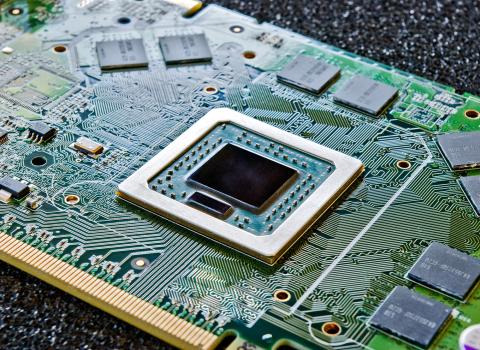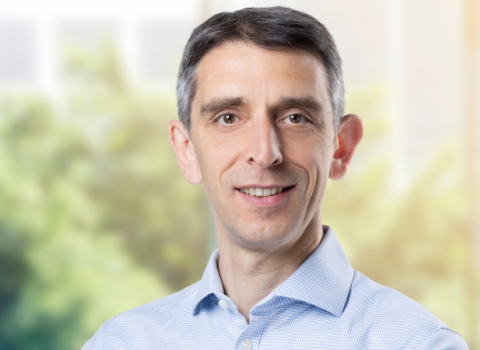The Fraunhofer-Gesellschaft and the Opole University of Technology in Poland are launching a joint research and development project in automotive lightweight construction
Lightweight construction in automotive production is one of the major technological challenges for efficient and resource-saving production. The Fraunhofer Institute for Machine Tools and Forming Technology IWU and the Opole University of Technology in Poland have joined forces to achieve this goal. They have developed a memorandum of understanding (MoU), which provides for an intensive collaboration in the research and development of automotive lightweight construction.
The MoU for the Polish-German "Fraunhofer Research Center for Automotive Lightweight Construction (ALC)" defines the objectives of the project, identifies specific areas of work and establishes rules for the use of patents. As a result of this cooperation, a Fraunhofer project center shall be created soon. The memorandum was signed by Prof. Marek Tukiendorf, President of the Opole University of Technology, Prof. Reimund Neugebauer, President of the Fraunhofer-Gesellschaft and Prof. Dirk Landgrebe, Director of the Fraunhofer IWU.
"The collaboration with the Fraunhofer Gesellschaft is not only an extraordinary opportunity for the future for the Opole University of Technology, it is also a special obligation for me and for the entire academic community," says Marek Tukiendorf. "Without a doubt, though, it is a milestone in the development of our university. At the same time, the initiative complements the aims and actions of the city government towards building an ‘innovative city’."
Mateusz Morawiecki, the Polish Minister of Finance and Economic Development, was also present at the signing. He explains: "It’s a good day for Polish-German cooperation. The project serves as a driving force for our close, friendly relations in business and science. Through the cooperation, a productive transfer of knowledge is initiated and innovative solutions for the industry are created. This is profitable for the people in both countries."
Fraunhofer President Reimund Neugebauer says: "Today, top-level research is based on interdisciplinary collaboration and international cooperation. That’s why I’m particularly looking forward to working with our Polish partners. The Fraunhofer IWU has a wealth of experience in lightweight construction and will contribute its expertise in handling modern materials. The researchers at the Opole University of Technology are contributing their strengths, such as regarding the simulation of process engineering and methods. In this way, we can together create added value, intensify the transfer of knowledge and strengthen the innovative power of the organizations."
The signing took place at the invitation of Tukiendorf within the framework of a full-day colloquium at the Opole University of Technology. The event was attended by Tower Automotive, an international high-tech supplier of car body parts. The company was represented by Pär Malmhagen, President of Tower International, the parent company of Tower Automotive. The company is closely involved in the collaboration as a project partner.
Pär Malmhagen says: "We have high expectations about the integration into the strong network of the planned Fraunhofer project center for automotive lightweight construction in Opole. This initiative reflects the key elements of Tower International’s strategy and enables us to continue to train our colleagues and students. With support from the political arena, the region has created the best conditions for addressing the current and significant challenges facing the automotive industry."
Lightweight Construction allows resource-efficient manufacturing
The "Fraunhofer Research Center for Automotive Lightweight Construction" combines the fundamental research of the Opole University of Technology with the applied research of the Fraunhofer Gesellschaft. The merger of the technologies in lightweight construction makes it possible, for example, to combine previously separate production methods in the processing of different materials, such as metals, plastics and technical textiles. Automobiles can then be produced in a cost-effectively, energy-efficient and environmentally friendly manner. This will ultimately also provide a benefit to the European automotive industry. And they will not be the only ones: "In addition, all industries in which lightweight construction and multi-component construction are used can try the new resource-conserving manufacturing technologies. As a result, they will contribute to climate protection," Neugebauer explains.
The research field of lightweight construction is regarded by all experts as a pioneering key technology. This is demonstrated by the nationwide excellence cluster MERGE, in which the Fraunhofer IWU is under direction of University of Technology Chemnitz actively involved. The aim of MERGE is to further develop and optimally combine technologies from areas such as plastics, metal, textiles and smart systems in order to achieve a very resource-efficient production as well as sustainable products. The partners of the excellence cluster also will contribute their experience to the new cooperation.
The project is a further building block in the traditionally positive collaboration between Poland and Germany. Particularly in science and business, the partnership has intensified following Poland’s accession to the EU on May 01, 2004. The border regions now have a well-developed network of centers dedicated to technology, innovation and research. Many technology centers in the region also help companies to become established by means of exchanging experience through collaboration with Polish partners. The Polish-German "Fraunhofer Research Center for Automotive Lightweight Construction"can serve as an important catalyst for deepening the bilateral exchange between the countries.





 A unique international forum for public research organisations and companies to connect their external engagement with strategic interests around their R&D system.
A unique international forum for public research organisations and companies to connect their external engagement with strategic interests around their R&D system.